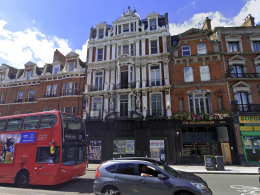Wimbledon’s MP has accused the All England Lawn Tennis Club of acting in bad faith by attempting to push through parliamentary legislation affecting its court case while simultaneously offering to meet with the community.
In a sharp exchange of letters posted on social media, Paul Kohler told AELTC chair Deborah Jevans that the club “without notice, sought to bypass both those discussions and the imminent proceedings” after giving “repeated assurances” of community engagement.
The row centres on Amendment 250 to the Planning and Infrastructure Bill, which would retrospectively validate the club’s 1993 purchase of Wimbledon Park Golf Course and effectively end the Save Wimbledon Park campaign’s legal challenge scheduled for January.
Kohler’s rebuke came in response to a conciliatory letter from Jevans defending the club’s role in the controversial amendment and offering to continue dialogue. But the MP said the club’s actions had “hardly helped matters” and accused it of undermining democracy by “clandestinely seeking to rewrite the law in their favour.”
The letters
Jevans wrote to Kohler on 27 October, two days after we reported that Lord Gus O’Donnell – an AELTC director – was sponsoring legislation that would directly benefit the club’s court case.
In her letter, Jevans defended the amendment as addressing “a time-critical opportunity to amend the Local Government Act 1972 to clarify the law” following the Supreme Court’s Day v Shropshire decision, which she said had created “uncertainty” in the planning system.
She also defended Lord O’Donnell’s role, stating that he “was acting within the spirit of the Nolan principles of Selflessness and Objectivity” and noting that the code of conduct change in April 2025 had removed voluntary positions from the register of interests.
“The amendment which Lord O’Donnell sponsored and spoke to, was clearly intended to retrospectively change the law in the AELTC’s favour,” Jevans acknowledged, but argued it was “entirely in line with the Government’s objective to get Britain building.”
The AELTC chair concluded by saying she looked forward to meeting with Kohler “and, in the interim, would, of course, be happy to discuss the above.”
But Kohler’s response, dated 14 November, was unequivocal in its criticism.

‘Deeply disappointed’
“I was consequently deeply disappointed when the AELTC, without notice, sought to bypass both those discussions and the imminent proceedings, as trust is critical to reaching a satisfactory conclusion,” Kohler wrote.
“Given the AELTC’s repeated assurances, over many decades, that they had no intention to ever build on the land, the community already had understandable concerns regarding their bona fides. You will, I hope, therefore understand why this latest episode, along with the problematic description of the AELTC as ‘good faith purchasers’, has hardly helped matters!”
The MP challenged Jevans’ characterisation of the Supreme Court ruling as creating a “messy situation,” arguing instead that “the messiness is not the result of uncertainty in the law, but of the council’s failure in that case to undertake the necessary investigations and follow the statutory procedures that exist to protect public rights.”
Kohler also took issue with Jevans’ defence of Lord O’Donnell, stating he had “no pleasure, in either criticising Lord O’Donnell (who, as I said to him when we met in the Royal Box, is one of my heroes) or you (for whom, as I hope is evident, I have the greatest respect).”
But he added: “I consequently trust we can collectively put this episode swiftly behind us.”
The MP said he looked forward “to the [next] meeting when we can resume, openly & honestly, discussing the issues that currently divide the AELTC and the local community, as we work towards a sensible resolution.”

Parliamentary tactics
The exchange reveals the breakdown of attempts to find a compromise between the club and campaigners opposing its expansion plans.
Save Wimbledon Park is challenging the club’s proposal to build 38 grass courts and an 8,000-seat show court on the former golf course land. Their judicial review, scheduled for the High Court in January, argues the site remains protected by a statutory trust for public recreation.
Amendment 250 – if passed – would have retrospectively remove that protection for all council land sales since 1980, even where proper consultation procedures were not followed.
The amendment was debated in the House of Lords on 27 October, the same day Jevans wrote her letter to Kohler. During that debate, Lord O’Donnell defended the legislation, arguing it would resolve uncertainty and support economic growth.
Kohler’s criticism centres on the timing: the club pursuing aggressive legislative change while publicly expressing willingness to negotiate with the community.
The AELTC purchased the 73-acre golf course site in 2018 for £65 million. Following approval from the Greater London Authority in September 2024, the club won its judicial review challenge in July 2025 when a High Court judge rejected Save Wimbledon Park’s arguments.
The January court case represents a separate legal challenge focusing specifically on whether the land remains subject to a public recreation trust.
The current plans would see the qualifying tournament moved from Roehampton to the expanded Wimbledon site, with attendance potentially increasing from 2,000 to 10,000 daily spectators. AELTC chair Jevans has described the project as “one of the greatest transformations since the London [2012] Games.”









